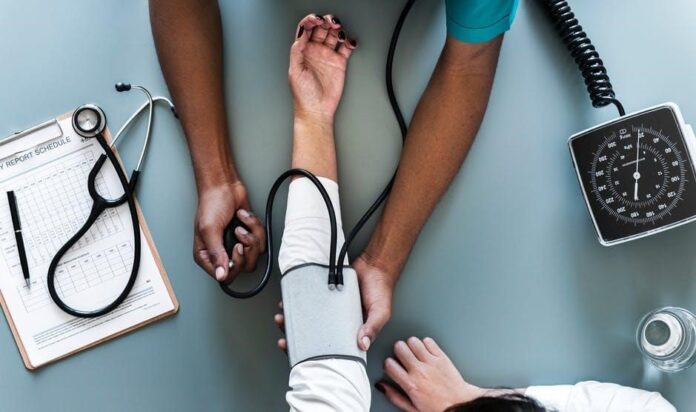Did you know that buying the right doctor supplies is a crucial part of running a medical office smoothly?
Medical office managers are responsible for ensuring the smooth and efficient running of the office, and this includes purchasing the necessary doctor supplies. With a wide range of products available in the market, it can be overwhelming for medical office managers to determine which supplies to purchase and how much to spend.
How can you make sure you review everything the doctors in your office need consistently? Read on to find out what some of the most essential doctor supplies that every medical office should have on hand.
Medical Gloves
Disposable gloves are an essential item for any medical office. They are used to protect medical staff from exposure to infectious materials and to prevent the spread of germs from patient to patient. There are different types of medical gloves available, including latex, vinyl, and nitrile gloves. Stock different sizes to accommodate all staff members.
Medical Masks
Medical masks are also a crucial item for any medical office. Masks are used to protect both medical staff and patients from airborne germs and viruses. Make sure to stock different types of masks, including surgical masks and N95 respirators; check this page for 3m 1870 mask and more. This is to make sure you can accommodate different medical procedures and situations.
Syringes and Needles
Syringes and needles are commonly used in medical offices for various procedures. They’re used for administering medication, drawing blood, and delivering injections. Make sure to have a range of sizes of syringes and needles available. This is to accommodate different procedures and patients’ needs.
Medication
Your medical office should have a stock of essential medications on hand for emergency situations. These may include epinephrine for allergic reactions and aspirin for heart attacks. Make sure to store medications safely and according to their instructions to ensure their effectiveness.
Personal Protective Equipment (PPE)
With the ongoing COVID-19 pandemic, PPE has become an essential doctor supply. You should ensure that you have a sufficient supply of masks, gloves, gowns, and face shields. Make sure that your staff is trained in the correct use of PPE, and that they wear it consistently. PPE not only protects your staff but also helps to prevent the spread of infection.
Medical Equipment
In addition to PPE, you should also ensure that you have a good supply of medical equipment. This includes items such as blood pressure monitors, thermometers, stethoscopes, and otoscopes. Make sure that your equipment is regularly serviced and maintained to ensure accuracy and reliability.
Office Supplies
In addition to medical supplies, you should also keep a stock of office supplies on hand. This includes items such as paper, pens, toner cartridges, and cleaning supplies. While these items may not seem essential, they are critical for the smooth running of the office.
Shop Smart for the Best Doctor Supplies
As a medical office manager, you play a critical role in ensuring that your office is stocked with essential doctor supplies. By keeping a good inventory of doctor supplies, you can help ensure that your medical staff can perform their duties and provide the best possible care for patients. Remember to check your supplies and replace any expired or used items promptly to ensure their effectiveness when needed.
If you found this post helpful for medical office managers and want to see more like it, be sure to check out the rest of our blog page.
Read Also
- Transforming Patient Care with Professional Healthcare Transcription ServicesIn today’s fast-paced healthcare environment, the need for precise and timely documentation cannot be overstated. Accurate documentation is not merely an ancillary task; it is a core element of delivering high-quality patient care. The ability to maintain compliance with regulations, enhance operational efficiency, and ensure the integrity of patient records has never been more critical.… Read more: Transforming Patient Care with Professional Healthcare Transcription Services
- Essential Steps to Launch Your Own Optometry PracticeLaunching your own optometry practice can be a thrilling and fulfilling journey. However, it requires careful planning, dedication, and an understanding of what it takes to succeed. With the growth in demand for eye care, more and more individuals are seeking to start their own practices. But how do you get there? This guide walks… Read more: Essential Steps to Launch Your Own Optometry Practice
- Compounding Pharmacy: Personalized Medication SolutionsA compounding pharmacy plays a vital role in modern healthcare by providing customized medications tailored to the specific needs of individual patients. Unlike mass-produced drugs manufactured by pharmaceutical companies, compounded medications are prepared by licensed pharmacists who carefully combine, adjust, or modify ingredients to create a formulation that best suits a patient’s unique medical requirements.… Read more: Compounding Pharmacy: Personalized Medication Solutions
- The Best Business Decision a Surgeon Ever Made: Ordering a Medical Equipment AppraisalMost surgeons don’t go into medicine because they love spreadsheets, valuations, or negotiating buy-ins. They go into medicine because they want to operate, treat patients, and build something meaningful over time. For one surgeon, that mindset worked perfectly, until the day another surgeon decided to buy into his practice. That moment exposed a problem he… Read more: The Best Business Decision a Surgeon Ever Made: Ordering a Medical Equipment Appraisal
- Creative Approaches to Alleviating Healthcare Staff ShortagesHospitals and clinics are facing staff shortages, which makes it harder to take care of patients well. Finding simple and useful solutions is very important. Easy changes like flexible work hours, good training, and chances to grow can help staff stay happy. Technology, like online doctor visits and helpful tools, can make work easier. Smart… Read more: Creative Approaches to Alleviating Healthcare Staff Shortages






